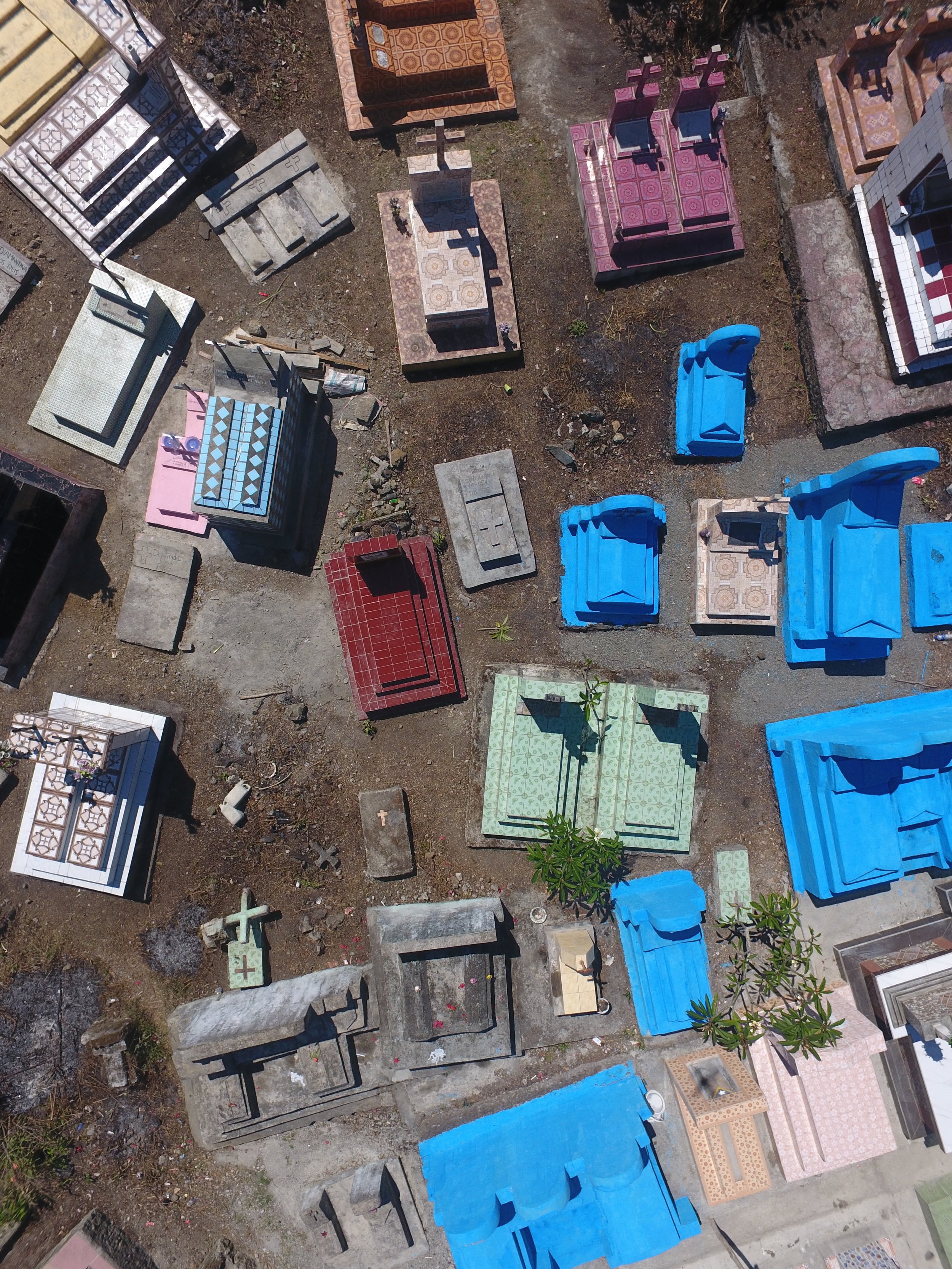Damian Grenfell’s research focuses on the dead and missing from war. Based at RMIT University in Melbourne Australia where he teaches and researchers as part of a Global Studies and Languages Discipline, Damian’s research has incrementally come to focus more directly on the dead and the missing where this occurs as a consequence of mass violence. Earlier research which critically engaged with the intersection between transitional justice and nation formation highlighted the importance of different life-worlds in the funerary practices, venerative customs and memorialisation processes undertaken by survivors, and this has led in turn to a more direct focus on the social significance of the dead and missing, particularly in post-conflict and post-colonial contexts. In terms of ‘post-conflict’, Damian’s research to date has focused on the experiences of survivors in Timor-Leste as they have consolidated political independence following a nearly 25 year Indonesian occupation and nearly 500 years of Portuguese colonialism. Even contemporary death in Timor-Leste that occur outside of the context of occupation remain informed by the societal changes prior to and during the Indonesian occupation and the social and political trajectories of the territory since. The ‘post-colonial’ dimension to the research considers particularly the points of intersection between different life-worlds and what it means to survivors when someone is killed in war or where a body cannot be retrieved at all. With wars in Ukraine, Sudan and particularly the Palestinian-Israeli conflict, the research work in Timor-Leste is increasingly being lifted into connection with very different sites and conflicts even as the same question of the relationship between the dead and the missing and survivors is maintained. In this work, the central question has become one of working through the consequences of abstracting the dead through lists, tolls and totals so as to understand the impact of such practices on the still living.
To see more on the Timor-Leste Research Program visit the website here.
The following is a selection of key articles by Damian that reflect on reasons for the importance of venerating the dead and how this opens points of possible tension between customary and religious beliefs on the one hand with the process of nation formation on the other.
Grenfell, Damian. 2021. “The Humanity of the Dead: Rethinking National Reconciliation in Contemporary Timor-Leste.” In Multi-level Reconciliation and Peacebuilding: Stakeholders Perspective, edited by SungYong Lee and Kevin Clements. Routledge.
Grenfell, Damian. 2020. “Death, emplaced security and space in Timor-Leste.” Cooperation and Conflict, 55 (2).
Grenfell, Damian. 2020. “Unfulfilled Peace: Death and the limits of liberalism in Timor-Leste.” In Martyrs, Ancestors and Heroes in Timor-Leste, edited by Lia Kent Rui Graça Feijó. Amsterdam University Press.
Grenfell, Damian. 2015. “Of time and history: the dead of war, memory and the national imaginary in Timor-Leste.” Communication, Politics and Culture 48(3): 16-28.
Grenfell, Damian. 2012. “Remembering the dead from the customary to the modern in Timor-Leste.” Local Global 11: 86-108.
All four photos (other than the bio photo) are from Timor-Leste and taken during field work. The aerial photo that includes blue graves above is from Tokogele in Lolotoe (2018), Bobonaro. The second image above is of the main cemetery in Same (Manufahi) looking towards Mount Kablake. The third photo is Santa Cruz Cemetery in Dili on the evening of Loron Matebian (All Souls Day) in 2018 while the final image (2019) is of a community memorial to members of the community in Maupitine (Lautein) who were massacred in 1983. The memorial itself was unveiled in 2006.




